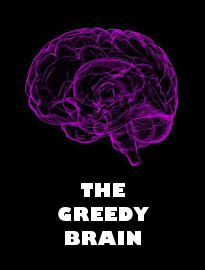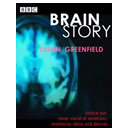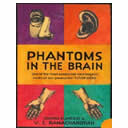The Brain that Changes Itself
There's so much about the human brain that continues to baffle and mystify our top medical researchers, but one aspect of its complex design is starting to come into focus. Contrary to previous widely held beliefs, the human brain exists in a perpetual state of constant change. The documentary The Brain That Changes Itself explores these groundbreaking findings as heralded in a book of the same title by psychiatrist and researcher Dr. Norman Doidge.
For four hundred years, the common perception was that the brain worked much like a computer, and its functionalities were set as firmly in place as any machine. But what if the brain is actually morphing and maturing at all times based upon the stimuli of its environment? Such a notion, as argued by Dr. Droidge, would alter our perspectives on brain disease and dysfunction, and revolutionize our understanding of human nature itself.
The revolution began with the discovery of neuroplasticity, a term used to describe the structural changes of neurons in response to factors like environment, thought processes, and bodily injury. The phenomenon of neuroplasticity provides evidence of the brain's stunning malleability, and its inherent capacity to overcome and adapt to even the most severe challenges. Ongoing studies are indicating that in many cases, the healthy parts of the brain can be recruited to supplant those that are defective.
Dr. Droidge has not come to these conclusions on his own. They result from the tireless efforts of some of the world's most progressive medical scientists. The Brain That Changes Itself introduces us to many of these brilliant figures as well as a host of patients who have benefited from their brave new world of research. Their findings offer hope to victims of crippling neurological conditions like stroke, cerebral palsy, and chronic depression.
The implications set forth are not limited to the treatment of traumatic injury. This exciting realm of medical science can point the way to a more enlightened existence, and unlock a potential in the human species never before believed possible. For that reason alone, this film is a fascinating exploration that is relevant to all viewers.




Neuroplasticity has been long since then a standard of practice, not a scientific fiction. But EBP also shows that it is not limitless and there are certain processes set in place that block some neuro connections “until the further notice”. Which I personally believe related to the level of individual spiritual development. It is dangerously ignorant to over simplify this amazing biological machine. I would just remind that life is very short to get over excited about such a silly matter. The most important discovery is that almost all brains capable of kindness and empathy. No need to study much, just practice.
@davetheman-pls go back over what u said and give it another think. It actually does make sense & isn't redundant. It is constant change that continues on, as opposed to constant change that happens for a set period of time and slows or stops or whatever. But we all get what u thought.
"...a perpetual state of constant change."
LOL. Something from the Department of Redundancy Department.
Peter,
I would advise you avoid the misuse of "to and too" in this review for such matters in the future. It appears TOO contrived, TOO scripted, and that gives an air of suspicion, and phoniness to the presentation.....
“To” means toward: Peter gave a present to Grandpa for his birthday.
“Too” means also or very: Peter carry-on bag was too large, and the airline made him check it.
Brain plasticity is the real thing. "You become what you do". This fact of brain plasticity gives the sense of great motivation to live the life by knowing that you can achieve what you want by believing that you can achieve and starting to practice the process to achieve it.
Wonderful! Hope I live long enough (I'm 79) to see more miracles! One small criticism of the film: The music was loud and intrusive.
The Brain named itself -
I have an acute sense of (media communication style). I had a bad feeling about this documentary, and it's style from the start. It wasn't a 100%, but a strong sense that I was being sold a bill of goods, particularly with the carefully scripted, classically lit subjects, and the constant repetition of the words neuroplasticity, neuroplasticity neuroplasticity, perhaps 30- 40 times I guess. I have an extreme dislike for what I refer to as infotainment, (infomercial style). My aversion to cheaply hidden promotional content masquerading as objective content is very strong. I loath, and despise infomercials. I am pleased to say, that feeling, abated when Doctor V.S. Ramachandra appeared, who I have respected for many years. Since the first time I heard him speak, we had a connection of neural understanding from the beginning. There has been no doubt in my mind for 40 years about (neuroplasticity) Since the first Psychology course where I learned about neurons, ion transfer, vesicles, telodendria, axons, dendrites, and the three dimensional character of brain tissue. The idea that this amazing lump of protoplasm , the product of millions of years of evolution was fixed, and unadaptive was completely ludicrous to me. The capacity for life long development of the brain has been shown to be virtually unlimited with the right therapy, attitude, and structured practice. I would advise the participants, and the film maker to avoid the structured formality style of this documentary for such matters in the future. It appears to contrived, to scripted, and that gives an air of suspicion, and phoniness to the presentation, legitimate or otherwise. That in turn sheds a bad light on the authenticity of the science, and the scientists participating. Dr. Ramachandra saved your hides. There's nothing wrong with making money from an idea, but it's always best to be utterly straight forward about that relationship, Hiding it in a subliminal informercial is a bad idea. Otherwise great story, thanks.
why wait until a person loses a particular skill before working to get it back? why not add skills on an "on-demand" basis, sort of like buying apps. who wouldn't appreciate having enhanced sensory powers now? like feeling whiskers or a tail, or having canine olfactory sensitivity? cops could use that last one; burglars, the first and second. well, i guess we could all use a dose of extra-sensoriness now and again.
The business world has a culture that promotes fine tuning repetitive tasks in the employees. Then along comes a crisis of change and the employees are asked to perform an entirely different task. The result is the employer chastising the employees for not being able change tasks efficiently.
The employee is victimized first by the "programming" of the brain by the employer and than again by the damage of chastization for the failure of change.
The race to the bottom to hire low quality and low cost people managers is damaging society.
Neuroplasticity should be part of a college class on business and be as important as the latest business theories.
I always wondered about fathom limbs how people could possibly feel something so intensely that wasn't there anymore. This is really incredible. Going to get the book. Really enjoyed this.
or people who watch a pre recorded knee op on the screen in theater thinking it is their own op but in reality the doc does nothing yet the patients knee probs are solved/.
I could go for that one.
makes perfect sense.
loved the doc 10 years ago when i first saw it and love it now.
I had this book, really fascinating stuff.
a placebo brain for all that choose to deny their own powers.
As a neuroscience student, I approve this message.